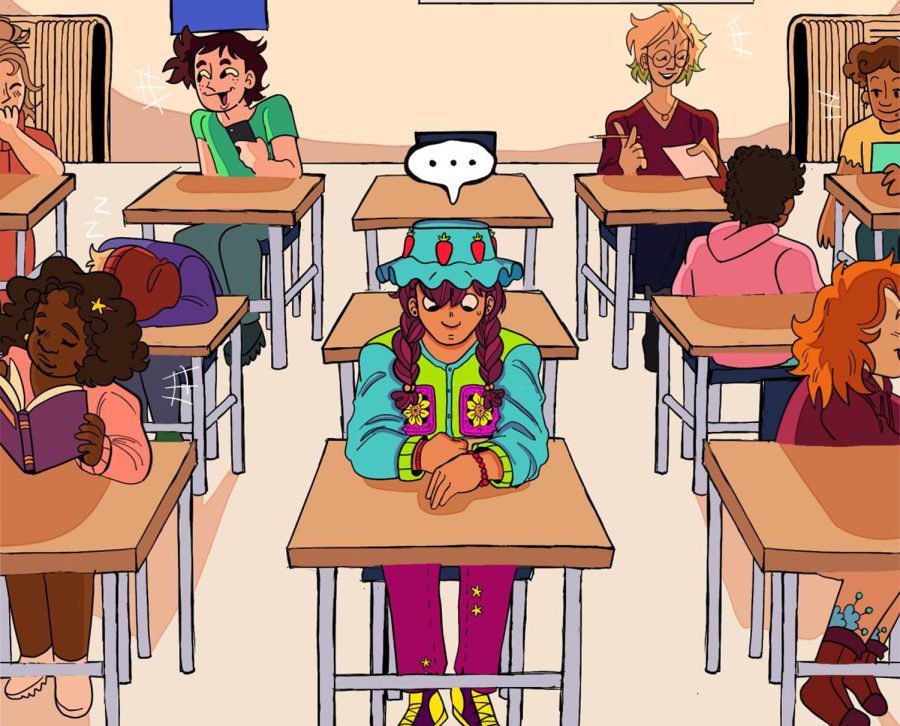Opinion: Unfair treatment of quiet kids needs to stop
Being quiet comes with negative stereotypes and treatment, which need to change
Quiet students are often treated differently from louder more extroverted students, but that needs to change.
May 4, 2023
“Talk more.” “Are you depressed?” “Being quiet won’t get you anywhere!”
Quiet kids have heard these phrases countless times. In a society that values extroversion, these kids are often overlooked or, even worse, seen as strange and flawed. This unfair treatment needs to stop. Quiet kids are just as capable as their extroverted counterparts.
Nearly all of society values being loud and outspoken. Both at the workplace and school, being extroverted is seen as desirable. In schools, as children age, “A pleasure to have in class” turns into “Your child needs to talk more.” Society expects students to change their demeanor once being quieter is no longer “normal.” When they don’t change, labels and stereotypes often come along.
One of which is the notion that if someone is quiet, they must be depressed. Somehow, society translates quietness into loneliness or sadness. Often, that’s an incorrect assumption. Some people enjoy keeping to themselves or a small social circle. That is not a sign of mental illness. Rather than uphold negative stereotypes, society should let quiet people be. They are not harming anyone by being more reserved. After all, most quiet kids are not bashing “loud kids” for being loud or labeling them with mental illnesses.
People often see extroversion as a blueprint for success. Thus, at times, there’s the belief that quiet people can’t be as successful. That couldn’t be farther from the truth. From the presidency to Big Tech, successful quiet people are everywhere. For instance, former President Calvin Coolidge was notorious for being reserved and giving “yes or no” answers. Despite that, the United States prospered economically during his presidency. He even pioneered using the radio to communicate with citizens. Seemingly, being quiet was not a hindrance.
Sometimes, even if quiet kids step out of their comfort zone, they are dismissed or ridiculed. When they try to speak up or take charge, they face comments like, “There’s no way you’re doing that!” or “So, you aren’t mute?” There is no winning. Either quiet kids get shamed, discouraged, or made fun of. Rather than this, society should meet them with support, not jokes that are in poor taste and uphold negative stereotypes.
At school, many teachers make quiet kids feel included, which is helpful and a nice gesture. It is great when they don’t immediately dismiss or underestimate reserved students. Any student can be successful if given the opportunity. Additionally, many teachers create different types of assignments that don’t include public speaking. That is helpful for many students. Efforts to make quiet kids feel welcome are valuable — especially not judging them. Many face enough adversity from their peers as is. Including all types of students is crucial to ensuring their success.
In many ways, this world was not built for quiet kids, that’s for sure. Extroversion and outgoingness are almost always valued more. However, that doesn’t mean quiet kids can’t be appreciated and respected as they are. Being more reserved is not a hindrance or flaw. Anyone can be successful — and society needs to realize that.











